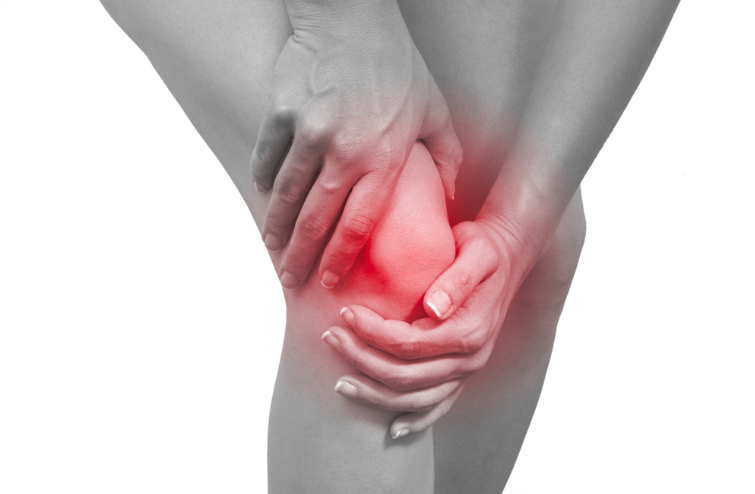You may find yourself with knee pain while engaging in activities like walking, running, kneeling, and sports activities such as basketball or golf. If you are struggling to complete these activities without knee pain, a visit to an orthopedic doctor may be beneficial. Doctors don’t always have an immediate fix, and the problem may need to be resolved over a period of time. Nonetheless, the doctor you visit will work with you to manage your pain and fix the problem to make sure you get back to doing the things you love like running, sports, or even keeping up with kids and grandkids.
In orthopedics, there are common standards of treatment for knee pain to help patients live pain free. Non-surgical treatments may be used to manage the pain, but these treatments may not be a long-term solution. However, the following four non-surgical treatment options are commonly suggested by orthopedic doctors to help control and manage knee pain.
- Treatments begin with rest, ice, heat, and pain relievers like ibuprofen and other non-steroidal anti-inflammatory drugs (NSAIDs). Although this seems simple, sometimes just taking time off can help people manage knee pain.
If the simple fix doesn’t help manage pain, the doctor may suggest an injection of medication into the knee joint.
- One type of injection is a corticosteroid or cortisone shot, which is an anti-inflammatory pain reliever. Corticosteroid injection may or may not be effective and according to Dr. Jonathan Samuels, assistant professor of rheumatology at New York University, “the injections help some patients significantly but others do not get much relief at all.” Dr. Samuels also says, “a patient shouldn’t have corticosteroid injections more than once every three to four months.” In addition to Dr. Samuels’ thoughts, guidelines by American Family Physician estimate the duration of pain relief at no more than two months. Corticosteroid injections may provide short term relief but may not be a long term solution.
- Another type of injection is hyaluronic acid, which is a natural substance in the knee joint that breaks down in people with osteoarthritis. Hyaluronic acid injection acts as a supplemental lubricant and shock absorber for the joint. The Arthritis Foundation says patients can expect to receive the injections once per week for three to five weeks. According to a study by Dr. Nicholas Bellamy of the University of Queensland in Australia, it takes about five weeks before a patient experiences the full benefits of a hyaluronic acid injection. Although your doctor may recommend this treatment, according to the American Academy of Orthopaedic Surgeons, “the most recent research has not found hyaluronic acid injection to be effective at significantly reducing pain or improving function” while also pointing out that “although some patients report pain relief, some people are not helped.” Like the corticosteroid injection, hyaluronic acid may or may not be effective and also may not be a long-term solution.
- Another remedy for knee pain is physical therapy, which may be coupled with an injection. If you decide on the injection, your doctor may also suggest continuing treatment with physical therapy for the next several weeks. Ask your doctor if they recommend undergoing therapy at the hospital or an independent location and be sure to check which therapists are covered under your health insurance. Physical therapy for knee pain typically consists of muscle strengthening and range of motion exercises. Specifically, muscles that are strengthened for better knee stability include the thigh and hamstring muscles on the upper part of the leg. According to the American Academy of Orthopaedic Surgeons, muscle strengthening will reduce stress on the knee joint while stretching exercises will help restore range of motion.
If you suffer from knee pain, a visit to an orthopaedic doctor may be beneficial for more information. This list is not exhaustive of all treatment options available for knee pain but only represents common treatments that may be suggested by an orthopedic doctor. Always consult a doctor when considering medical treatment, such as non-surgical remedies for knee pain like injections and therapy.
Sign up for the free newsletter and receive the 2017 Knee and Hip Replacement Price Report.
